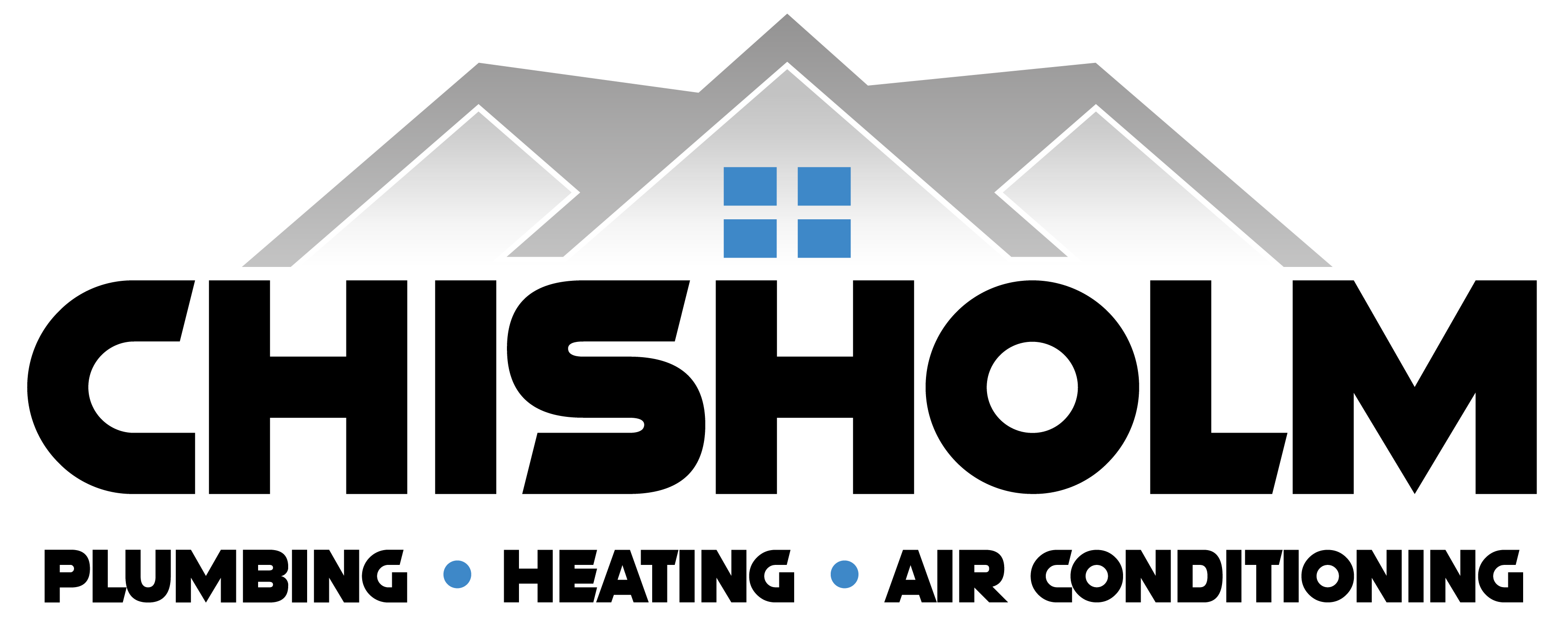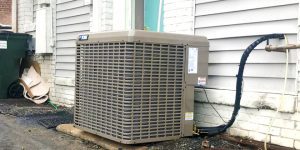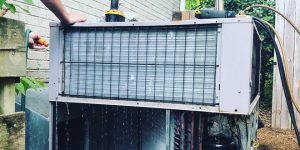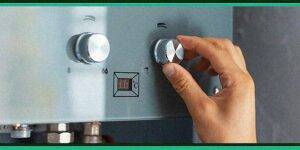Hurricane Helene left widespread flooding in its wake, and as the water recedes, many homeowners in the Greer area are faced with damage that goes beyond the obvious. Flooding can wreak havoc on your home’s plumbing system, leading to issues that, if left untreated, can worsen during the winter months. In this blog, we’ll provide thoughtful, actionable tips on how to inspect and maintain your plumbing system after a hurricane, ensuring it’s prepared for the cold weather ahead.
Table of Contents
| Section | Overview |
| Flooding and Plumbing: How Hurricane Helene May Have Affected Your System | Explores the specific ways flooding can impact your home’s plumbing, from blocked drains to pipe damage. |
| Signs of Flood-Related Plumbing Damage | Describes common indicators of plumbing issues caused by flooding, such as slow drains or water discoloration. |
| Winter Plumbing Maintenance Tips Post-Flooding | Step-by-step guidance on how to ensure your plumbing is ready for the colder months following a storm. |
| Plumbing System Data: Flood Damage vs. Routine Winter Maintenance | Compares the impact of flood damage on plumbing systems versus regular winter upkeep. |
| FAQ: How to Maintain Your Plumbing After a Hurricane | Answers common questions about post-hurricane plumbing maintenance and repairs. |
| How Chisholm Can Help You Safeguard Your Plumbing System This Winter | Outlines how Chisholm’s plumbing services can help you repair flood damage and prepare for winter. |
Glossary of Terms
- Sump Pump: A device used to remove accumulated water from a basement or crawl space, especially important after flooding.
- Backflow: The unwanted reversal of water flow in a plumbing system, potentially leading to contamination.
- Main Sewer Line: The large pipe that connects your home’s plumbing to the municipal sewer system.
- Water Heater: A device that heats water for domestic use, often at risk after flooding due to potential damage or sediment buildup.
- Pipe Insulation: Material used to cover pipes and prevent them from freezing during cold weather.
Flooding and Plumbing: How Hurricane Helene May Have Affected Your System
Flooding from Hurricane Helene has impacted homes across the Greer area, and your plumbing system may have been hit harder than you think. Floodwaters carry debris, dirt, and other contaminants that can infiltrate your pipes, clogging drains and damaging fixtures. Even if the floodwater didn’t visibly enter your home, water from the ground can seep into underground plumbing systems, leading to issues such as cracked or collapsed pipes.
- Blocked Drains and Sewer Lines
Floodwaters can deposit dirt and debris into your drains, leading to blockages in your home’s plumbing or the municipal sewer system. Blocked drains can cause slow drainage, unpleasant odors, and backups, all of which can be exacerbated as winter approaches. - Contaminated Water Supply
During floods, backflow can occur, meaning contaminated water may enter your home’s potable water supply. This can lead to health hazards and a need for thorough pipe cleaning or even replacements to ensure your water is safe. - Foundation Shifting
Extensive water saturation can cause your home’s foundation to shift, potentially leading to broken or misaligned pipes. Foundation issues often go unnoticed until you begin seeing cracks in walls or experiencing plumbing leaks inside your home. - Water Heater Damage
If your water heater was exposed to floodwater, it could be at risk for internal damage, such as corrosion or sediment buildup. In winter, a faulty water heater is especially problematic, as it will struggle to provide the hot water needed for your home.
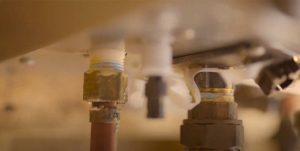
Signs of Flood-Related Plumbing Damage
After a storm like Hurricane Helene, it’s important to be vigilant about the signs of flood damage in your plumbing system. While some issues may be obvious, others can go unnoticed until they worsen. Here are some key indicators to look for:
- Slow or Clogged Drains: If water takes longer than usual to drain from your sinks, tubs, or showers, there could be a blockage caused by debris from the flood.
- Discolored Water: Brown or rusty water coming from your taps may indicate sediment or contamination in your pipes, often due to flooding or backflow.
- Sewer Smells: A strong, unpleasant odor coming from your drains could signal a backup in your main sewer line, which can be caused by flood damage.
- Gurgling Sounds: If you hear gurgling noises when flushing the toilet or running water down the drain, it could be a sign that air is trapped due to a clog or a partially blocked sewer line.
- Increased Water Bills: A sudden spike in your water bill can indicate a hidden leak, often caused by pipe damage from ground shifting or erosion during flooding.
Catching these signs early is essential to prevent more serious issues, especially as colder temperatures approach, which can make plumbing problems worse.
Winter Plumbing Maintenance Tips Post-Flooding
As winter approaches, preparing your plumbing system for cold temperatures is crucial, especially after a major storm like Hurricane Helene. Here’s a list of essential maintenance tips to ensure your system is in top shape:
- Inspect for Leaks and Cracks
Flooding can cause small cracks in your pipes that might not be immediately noticeable. Walk around your home and inspect visible pipes for any signs of leakage, especially in areas where floodwater may have been present. Address any leaks immediately to prevent water from freezing in your pipes once temperatures drop. - Clear Blocked Drains
If you noticed any slow or clogged drains after the flood, now is the time to clear them. Use a drain snake or call a professional plumber to ensure your pipes are free of debris that could cause problems later on. - Check Your Water Heater
After a flood, it’s important to have your water heater inspected for damage. Floodwaters can cause corrosion, sediment buildup, or electrical issues that may affect your heater’s efficiency. Ensure it’s functioning properly before the winter months, when you’ll rely on it the most. - Sump Pump Maintenance
If you have a sump pump, it likely worked overtime during the flooding. Check that it’s still functioning properly by running a test. Ensure it’s clear of debris and that the discharge line is not frozen or clogged. - Insulate Pipes
Winterizing your pipes is especially important after a flood, as moisture exposure can increase the risk of freezing. Insulate exposed pipes in unheated areas like basements, crawl spaces, and attics to prevent freezing and bursting. - Have a Professional Inspection
If your plumbing system was exposed to floodwaters, it’s a good idea to schedule a professional inspection. Chisholm Plumbing can thoroughly assess your system for any hidden damage and make necessary repairs to ensure it’s ready for winter. Learn more about our services here.

Plumbing System Data: Flood Damage vs. Routine Winter Maintenance
| Aspect | Impact of Flood Damage | Benefits of Routine Winter Maintenance |
| Water Quality | Contaminated by debris or backflow from flooding, leading to health risks. | Maintains clean water supply by ensuring proper water heater and pipe care. |
| Pipe Condition | Prone to cracking or misalignment due to foundation shifts or water pressure. | Prevents cracks and leaks by insulating pipes and checking for weak spots. |
| Drain Functionality | Slowed or blocked by debris from floodwater. | Ensures efficient drainage by clearing out blockages before winter. |
| Sump Pump Efficiency | Overworked during floods, leading to breakdown or failure. | Extends pump life with regular checks and debris clearing. |
| Risk of Freezing | Higher if pipes are weakened or exposed post-flood. | Reduced by insulating pipes and ensuring proper drainage. |
Routine maintenance not only ensures your plumbing system functions properly throughout winter, but it can also catch and repair flood-related damage before it becomes a larger issue.
FAQ: How to Maintain Your Plumbing After a Hurricane
- How do I know if my plumbing system was affected by the flooding?
Look for signs like slow drains, gurgling sounds, or discolored water. If you suspect hidden damage, a professional inspection is recommended. - Should I have my water heater inspected after a flood?
Yes, floodwaters can damage water heaters by causing corrosion, sediment buildup, or electrical issues. Having it inspected ensures it will function properly during winter. - What can I do if my drains are clogged after a flood?
You can try using a drain snake for minor blockages, but if the problem persists, professional drain cleaning is the best solution to avoid further complications. - Is pipe insulation necessary after a flood?
Yes, especially if your pipes were exposed to water or debris. Insulating pipes helps prevent freezing during the winter months, reducing the risk of burst pipes. - When should I contact a professional plumber for post-flood repairs?
If you notice any leaks, persistent clogs, unusual sounds, or suspect that your sewer line is damaged, it’s best to contact a plumber as soon as possible to avoid costly repairs down the line.
How Chisholm Can Help You Safeguard Your Plumbing System This Winter
As the Greer area recovers from the effects of Hurricane Helene, it’s essential to ensure your home’s plumbing system is prepared for the colder months ahead. Chisholm Plumbing, Heating & Air Conditioning offers expert plumbing services to address flood damage, clear blockages, inspect water heaters, and prepare your pipes for winter.
Our experienced team can provide a thorough assessment of your plumbing system and carry out any necessary repairs to ensure your home stays safe and functional this winter. Contact us today to schedule an inspection or service and give yourself peace of mind as the temperature drops.
